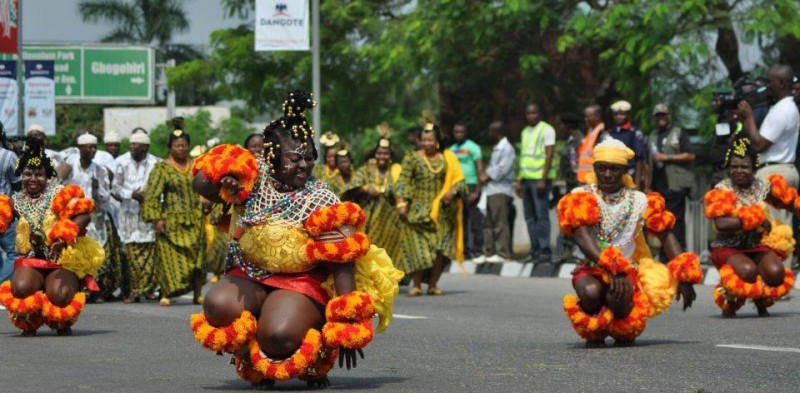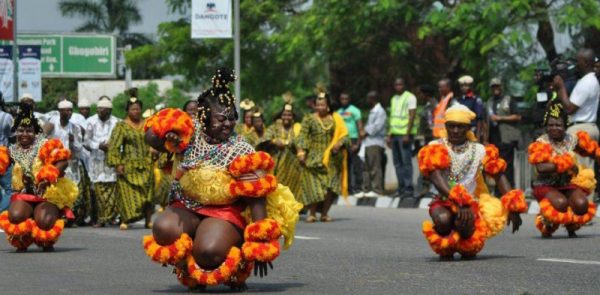Calabar is a city in and the capital of Cross River State, a state in the Southern region of Nigeria. The port city, close to the Cameroon border, is situated on a hill adjacent to the Calabar and Great Kwa rivers and creeks of the Cross River.
For administration purpose, the city is divided into two Local Government Areas: Calabar Municipal and Calabar South LGAs. According to the 2006 census, the population of the city was estimated at 371,022.
In the 16th century, the city of Calabar was an international seaport where goods were shipped out of the country. But these “goods” were slaves of which a fraction of them were Igbos living in the town. So, it can be clearly understood why the city would have been largely occupied by the European colonists. Although a British decree to ban slave trade in all British territories was made in 1808, slave trade did not stop in Calabar until 1842 when King Eyamba V of Duke Town and King Eyo of Creek Town signed a treaty agreement to end slave trade in the town. Thereafter, export of palm oil and palm kernels increased and became the major trade between the Calabars and the Europeans.
However, Calabar, which is also referred to as the “Canaan City”, was not always called “Calabar” rather it was originally called “Akwa Akpa” which was an Efik name. “Akwa Akpa” was founded by Efik families who had left Creek Town for the east bank of the Calabar River, to enable them dominate the slave trade ongoing at that time. “Akwa Akpa” was later also called “Duke Town” by the British. It was thereafter named “Calabar” by Diogo Cao, a Portuguese explorer.
As already stated, the people of Calabar (or Akwa Akpa) are Efiks who left Creek Town (their former settlement). Their largest settlements were Ikot Itunko, Obutong, and Iboku Atakpa, which were renamed as Creek Town, Old Town, and Duke Town respectively, by the British. The Efiks are, however, a subgroup of the Ibibio people and speak Obolo language.

BELIEFS
The Efiks believe Abasi is a supreme being, who is also married to Atai (also known as the mediator). In Efik mythology, there are two versions of their origin.
One version states that Atai suggested that Abasi sent two of their children to the earth (a daughter and a son). Abasi agreed but on the condition that the children would not procreate. The children eventually broke this rule and had children; Abasi got furious and sent chaos death to them.
Another version is similar to the first, except that the two opposite genders sent were not Abasi’s children. The same rule applied but it was broken and Abasi meted out the same punishments as recorded in the first version – chaos and death.
RELIGION
The earth deity, Ala, is worshipped and appeased through the Ogbom ceremony in order to bring about fruitfulness both biologically and economically.
SOCIETY
There is a secret society among the Efiks, called Ekpe (or Ekpo, which means ‘Leopard’ in Ibibio). Ekpe is a mysterious spirit believed to live in the jungle and preside at the ceremonies of the society. Members of the community are said to act as messengers of the ancestors (ikan).
The society admits only male members – boys are initiated when they get to puberty after necessary fees have been paid. In this society, there are grades (or ranks) and the members are ‘promoted’ to the next rank after appropriate initiation rites have been done and fees paid.
The highest rank, being Amama, comes with a social upgrade. Although initiation fees could cost up to a thousand penny in those days, the benefits reaped was far higher. The Amama was entitled to mass acres of palm trees farmland which funds he could appropriate as he deems fit. He could also promote his son to a comparable rank which automatically confers on him (the son) the rights applicable to his father.
The members are made to swear an oath of secrecy and masks are worn when they go out on their policing duties. Usually, when a member of the society feels hurt by someone’s actions towards him, he goes to the front of the person’s house and sounds the society’s horn. Once this is done, the other members swing to action immediately, to carry out judgement.
The Ekpe group can not only be found among the Efiks, but also among the Oron people of Akwa Ibom State, Arochukwu people of Abia State, and outside Nigeria in places like Cuba and Brazil.
References
https://en.m.wikipedia.org/wiki/Ekpe
https://en.m.wikipedia.org/wiki/Akwa_Akpa
Feature Image from: Jumia.com


